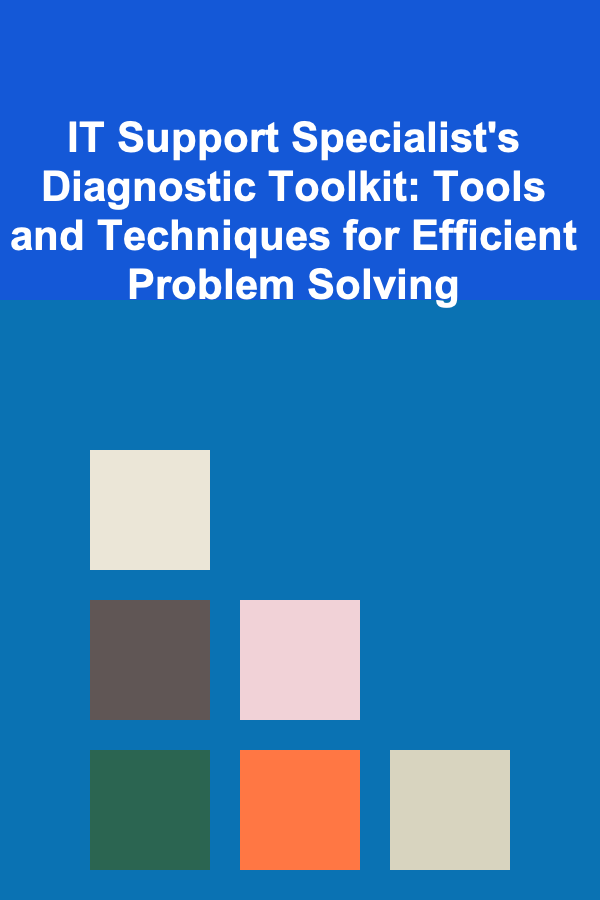
How To Get Better at Overwatch 2
ebook include PDF & Audio bundle (Micro Guide)
$12.99$6.99
Limited Time Offer! Order within the next:

Overwatch 2, like its predecessor, is a complex and multifaceted game. Success isn't just about raw aim; it's about understanding the nuances of team compositions, map knowledge, cooldown management, and a host of other factors. Improving in Overwatch 2 requires a deliberate and focused approach, going beyond simply playing more games. This article will delve into the key areas to focus on to elevate your gameplay and climb the ranks.
I. Foundational Principles: Mastering the Basics
Before diving into advanced strategies, it's crucial to solidify your understanding of the fundamental elements that underpin effective Overwatch 2 gameplay. These form the bedrock upon which all other skills are built.
A. Aim and Mechanics: Building Muscle Memory
While aim isn't the only determining factor, it's undoubtedly a critical component. Consistent, reliable aim allows you to secure crucial eliminations, pressure enemies, and contribute meaningfully to team fights.
- Sensitivity Settings: Experiment with different sensitivity settings until you find one that feels comfortable and allows you to track targets smoothly. A lower sensitivity is generally recommended for greater precision, especially for heroes like Widowmaker and Ana, but personal preference is paramount. Use practice range tools like aim trainers (e.g., KovaaK's, Aim Lab) specifically designed for Overwatch 2 to find your optimal sensitivity based on specific routines like target tracking and flicking.
- Crosshair Customization: Customize your crosshair to be visually clear and easy to track. Experiment with different shapes, colors, and sizes. A small, bright crosshair can be beneficial for pinpoint accuracy, while a larger one might be better for tracking fast-moving targets.
- Practice Range Drills: Dedicate time to practicing in the Practice Range. Focus on consistently hitting stationary targets, then progress to moving targets. Practice tracking enemies moving at different speeds and directions. Specifically work on "flicking" -- quickly moving your crosshair to a target and firing.
- Custom Game Modes: Create or join custom game modes designed for aim practice. Popular options include "Headshot Only" lobbies and "Ana Bots" -- lobbies filled with AI Ana bots specifically for improving tracking.
- Hero-Specific Training: Practice aim techniques specific to your chosen heroes. For example, projectile heroes like Genji and Hanzo require leading your shots to account for travel time. Hitscan heroes like Soldier: 76 and Cassidy benefit from practicing recoil control and burst firing.
B. Movement and Positioning: Surviving and Thriving
Overwatch 2 is a dynamic game with a high time-to-kill in most scenarios. Effective movement and positioning are paramount for survival and maximizing your impact.
- Understanding Cover: Utilize cover to your advantage. Learn the map layouts and identify areas that provide protection from enemy fire. Constantly reposition yourself between shots and abilities to avoid becoming an easy target.
- High Ground Advantage: Controlling high ground provides a significant advantage, offering better visibility, easier target acquisition, and often, protection from certain ultimates. Actively seek to secure and maintain high ground whenever possible.
- Peeking and Cornering: Master the art of "peeking" -- briefly exposing yourself to gather information or take a shot, then quickly retreating behind cover. This minimizes your exposure to enemy fire and allows you to assess the situation before committing. Learn different peeking techniques like wide swinging (useful for quick engages) or tight peeks (for gathering information safely).
- Predictive Movement: Anticipate enemy movements and adjust your positioning accordingly. For example, if you know an enemy Genji is likely to flank, position yourself in a way that allows you to quickly react to his attack.
- Movement Abilities: Effectively utilize your hero's movement abilities. Tracer's Blink, Genji's Swift Strike, and Lucio's wallriding can be used to dodge incoming fire, quickly reposition, and reach advantageous locations. Understanding the cooldowns and range of these abilities is crucial.
- Strafing and Juking: Incorporate strafing and juking movements to make yourself a harder target to hit. Vary your movement patterns to become less predictable.
C. Hero Abilities and Cooldown Management: Maximizing Utility
Each hero in Overwatch 2 possesses a unique set of abilities that define their role and effectiveness. Understanding these abilities and managing their cooldowns is essential for optimal performance.
- Ability Knowledge: Thoroughly understand the function, range, cooldown, and potential uses of each of your chosen hero's abilities. Experiment with them in the Practice Range to fully grasp their mechanics.
- Cooldown Tracking: Pay close attention to your own and your teammates' ability cooldowns. This allows you to anticipate enemy actions and coordinate your abilities effectively. Learn the common cooldown times for key abilities, such as Ana's Biotic Grenade or Reinhardt's Barrier Field.
- Ability Combinations: Identify powerful ability combinations that can be used to secure eliminations or provide utility for your team. For example, pairing Reinhardt's Earthshatter with a DPS ultimate like Genji's Dragonblade can be devastating.
- Strategic Ability Usage: Use your abilities strategically, rather than simply spamming them off cooldown. Consider the context of the situation and use your abilities to maximize their impact. For example, saving Ana's Sleep Dart for a flanking Reaper can prevent a devastating ultimate.
- Resource Management: Some heroes, like D.Va and Sigma, rely on resource management for key abilities like Defense Matrix and Kinetic Grasp, respectively. Effective management is crucial for survivability and utility.
II. Intermediate Skills: Elevating Your Gameplay
Once you've mastered the fundamentals, it's time to focus on intermediate skills that will further enhance your performance and allow you to adapt to more complex situations.
A. Game Sense and Awareness: Reading the Battlefield
Game sense is the ability to understand the overall flow of the game, anticipate enemy actions, and make informed decisions based on the available information. This is arguably the most important skill to develop in Overwatch 2.
- Map Awareness: Develop a strong understanding of the map layouts, including flank routes, health pack locations, and chokepoints. Knowing the map allows you to predict enemy movements, position yourself strategically, and secure advantageous engagements.
- Sound Cues: Pay attention to sound cues, such as footsteps, weapon fire, and ability activations. These cues can provide valuable information about enemy locations and intentions. High-quality headphones are essential for this.
- Ultimate Tracking: Track enemy ultimate charge levels. Knowing when enemies are likely to have their ultimates ready allows you to anticipate their usage and prepare countermeasures. Use the scoreboard to track enemy ultimate progress. Communicate ultimate statuses with your team.
- Enemy Positioning: Pay attention to the positioning of enemy players. Are they grouped together, or are they spread out? Are they holding high ground, or are they playing defensively? This information can help you identify weaknesses in their formation and exploit them.
- Team Composition Analysis: Analyze the team compositions of both your team and the enemy team. Identify strengths and weaknesses, and adjust your hero selection and strategy accordingly. Consider the synergy between different heroes and how they interact with the map.
- Objective Awareness: Always be aware of the objective status. Whether it's pushing the payload, capturing a control point, or defending a position, understand the priorities and adjust your gameplay accordingly.
B. Team Communication and Coordination: Playing as a Unit
Overwatch 2 is a team-based game, and effective communication and coordination are essential for success. Even individual skill can be overcome by a well-coordinated team.
- Voice Communication: Use voice chat to communicate with your team. Call out enemy positions, ultimate statuses, and strategic plans. Keep your communications concise and informative.
- Ping System: Utilize the ping system to quickly and easily communicate enemy locations, call for assistance, or indicate strategic targets, even without voice chat.
- Role Awareness: Understand your role within the team and focus on fulfilling your responsibilities. Tanks should focus on creating space and protecting their team, DPS heroes should focus on securing eliminations and pressuring enemies, and supports should focus on healing and providing utility.
- Coordination: Coordinate your abilities and ultimates with your teammates to maximize their impact. For example, coordinating a Zarya Graviton Surge with a Genji Dragonblade can guarantee a team wipe.
- Positive Attitude: Maintain a positive and supportive attitude. Avoid blaming teammates or engaging in toxic behavior. Focus on constructive criticism and working together to improve.
- Active Listening: Pay attention to your teammates' calls and instructions. Be willing to adapt your strategy based on their feedback.
C. Hero Matchups and Counter-Picking: Adapting to the Enemy
Understanding hero matchups and knowing when to counter-pick is crucial for gaining an advantage over the enemy team. Each hero has strengths and weaknesses, and some heroes are particularly effective against certain others.
- Hero Counter Chart: Familiarize yourself with common hero counter matchups. For example, Winston is generally effective against Genji and Tracer, while Reaper is effective against tanks.
- Situational Awareness: Consider the specific situation when choosing to counter-pick. A counter-pick may not always be the best option if it doesn't fit well with your team composition or strategy.
- Flexibility: Be willing to play multiple heroes so that you can adapt to different situations and counter the enemy team. Specializing in one hero can be beneficial, but it can also leave you vulnerable to counter-picks.
- Team Needs: Prioritize your team's needs over personal preferences. If your team lacks a specific role, even if it's not your best hero, consider switching to fill the gap.
- Practice and Experimentation: Experiment with different heroes and matchups to learn which ones you are most comfortable with and which ones are most effective in different situations.
III. Advanced Techniques: Refining Your Skills
Reaching the highest levels of Overwatch 2 requires mastering advanced techniques that separate good players from exceptional ones. These often involve subtle nuances and a deep understanding of game mechanics.
A. Ultimate Management and Baiting: Psychological Warfare
Ultimate abilities are game-changing tools that can swing the tide of battle. Advanced players master the art of managing their own ultimates and baiting out enemy ultimates.
- Ultimate Economy: Understand the concept of "ultimate economy" -- the relative value of different ultimates in different situations. Avoid using your ultimate in situations where it is likely to be countered or have minimal impact.
- Ultimate Sequencing: Coordinate your ultimate usage with your teammates to create devastating combos. For example, using a Zarya Graviton Surge followed by a D.Va Self-Destruct can guarantee a team wipe.
- Ultimate Tracking and Prediction: Predict when enemies are likely to use their ultimates and position yourself accordingly to avoid being caught in their area of effect. Track enemy ultimate charge and anticipate potential threats.
- Baiting Ultimates: Deliberately expose yourself to bait out enemy ultimates, then quickly retreat to safety. This can force the enemy to waste their ultimate or use it at an inopportune time. Use characters with abilities like Zarya's bubble to survive ultimate baiting scenarios.
- Canceling Ultimates: Learn abilities that can interrupt or cancel enemy ultimates. Examples include Roadhog's Hook for Pharah's Barrage or Ana's Sleep Dart for Soldier: 76's Tactical Visor.
B. Map Control and Flanking: Dictating the Pace
Controlling key areas of the map and utilizing flank routes can give your team a significant advantage in engagements.
- Establishing Control: Work with your team to establish control of key areas of the map, such as high ground, chokepoints, and health pack locations. Deny the enemy access to these areas and use them to your advantage.
- Flanking: Utilize flank routes to approach the enemy from unexpected angles. This can disrupt their formation, create opportunities for eliminations, and force them to reposition. Coordinate flanks with your team for maximum impact.
- Map Awareness for Flanking: Understand the various flank routes available on each map and choose the most appropriate route based on the situation. Consider enemy positioning and potential counter-flanks.
- Creating Space: Aggressively push forward to create space for your team to advance. This can force the enemy to retreat and allow your team to secure advantageous positions.
- Holding Space: Once space is secured, maintain control and prevent the enemy from reclaiming it. Utilize defensive abilities and strategic positioning to hold your ground.
C. Advanced Hero Techniques: Mastering Nuances
Each hero possesses advanced techniques and strategies that can significantly improve their effectiveness. These often involve exploiting specific quirks of their abilities or combining them in unconventional ways.
- Animation Canceling: Learn how to cancel certain animations to increase your hero's damage output or mobility. For example, cancelling Reaper's Wraith Form animation with a melee attack can allow you to quickly re-engage in combat.
- Ability Sequencing: Master the optimal sequence of abilities for your chosen heroes. For example, using Reinhardt's Fire Strike before engaging with his hammer can allow you to deal additional damage and secure an elimination.
- Projectile Prediction: Develop the ability to predict enemy movements and lead your shots accordingly. This is particularly important for projectile heroes like Genji and Hanzo.
- Advanced Movement Techniques: Master advanced movement techniques specific to your chosen heroes, such as Lucio's wallriding or Genji's double jump.
- Resource Management Mastery: For heroes with resource meters, like D.Va and Sigma, perfect the art of resource management to ensure optimal uptime of key abilities. Understand the recharge rates and prioritize usage accordingly.
IV. The Mental Game: Cultivating a Winning Mindset
Physical skill is only half the battle. The mental game plays a crucial role in your performance. A positive and focused mindset can make all the difference.
A. Tilt Management: Staying Calm Under Pressure
Tilt, the state of frustration and anger that negatively impacts your performance, is a common obstacle in competitive gaming. Learning to manage tilt is crucial for maintaining consistency.
- Recognize the Signs: Learn to recognize the early signs of tilt, such as increased irritability, negative self-talk, and reckless gameplay.
- Take a Break: If you start to feel tilted, take a break from the game. Step away from your computer, do something relaxing, and clear your head.
- Focus on What You Can Control: Focus on the aspects of the game that you can control, such as your own performance and decision-making. Don't dwell on things that are outside of your control, such as your teammates' actions or the enemy team's composition.
- Reframe Negative Thoughts: Challenge negative thoughts and replace them with positive and constructive ones. Instead of thinking "I'm terrible at this game," try thinking "I can learn from this experience and improve."
- Practice Mindfulness: Practice mindfulness techniques, such as meditation or deep breathing, to help you stay calm and focused under pressure.
B. Learning from Mistakes: Continuous Improvement
The best players are constantly learning from their mistakes and striving to improve. Embrace a growth mindset and view losses as opportunities for growth.
- Review Replays: Review your own replays to identify areas where you could have played better. Pay attention to your positioning, decision-making, and ability usage.
- Analyze Losses: Don't just brush off losses as bad luck. Take the time to analyze what went wrong and identify the key factors that contributed to the defeat.
- Seek Feedback: Ask more experienced players for feedback on your gameplay. Be open to criticism and willing to learn from their insights.
- Set Realistic Goals: Set realistic and achievable goals for yourself. Focus on improving one aspect of your gameplay at a time.
- Celebrate Small Victories: Acknowledge and celebrate your progress, even if it's just a small improvement. This will help you stay motivated and focused on your goals.
C. Maintaining a Positive Attitude: Fostering a Winning Environment
A positive attitude is contagious and can significantly impact the overall morale of your team. Cultivate a positive mindset and contribute to a winning environment.
- Encourage Your Teammates: Offer words of encouragement and support to your teammates, especially when they are struggling.
- Avoid Blaming: Avoid blaming teammates for mistakes. Focus on constructive criticism and working together to find solutions.
- Focus on the Positive: Focus on the positive aspects of the game, such as your team's successes and your own personal improvements.
- Be Respectful: Treat your teammates and opponents with respect, even when you are frustrated.
- Remember It's Just a Game: Don't take the game too seriously. Remember that it's just a form of entertainment and that winning isn't everything.
V. External Resources: Tools for Improvement
Beyond in-game practice, numerous external resources can aid in your Overwatch 2 journey.
- Overwatch League: Watching professional Overwatch League matches can provide valuable insights into team compositions, strategies, and individual player skills.
- Twitch and YouTube: Many skilled Overwatch 2 players stream on Twitch and upload educational content to YouTube. Learn from their gameplay and commentary.
- Overwatch Communities (Reddit, Forums): Engage with the Overwatch 2 community on platforms like Reddit and official forums. Share experiences, ask questions, and learn from other players.
- Coaching Services: Consider hiring a professional coach for personalized guidance and feedback.
- Aim Trainers: Utilize dedicated aim trainers like KovaaK's and Aim Lab for targeted aim practice.
VI. Conclusion: The Road to Mastery
Improving in Overwatch 2 is a continuous journey that requires dedication, effort, and a willingness to learn. By focusing on the foundational principles, developing intermediate skills, mastering advanced techniques, and cultivating a winning mindset, you can significantly elevate your gameplay and climb the ranks. Remember to be patient, persistent, and always strive to improve. Good luck, and have fun!

How to Build Trust with Your Audience on a One-Page Website
Read More
How to Incorporate Eco-Friendly Home Staging Techniques
Read More
How to Incorporate Greenery and Plants into Your Home Decor on a Budget
Read More
IT Support Specialist's Diagnostic Toolkit: Tools and Techniques for Efficient Problem Solving
Read More
The Standout Mindset: How to Develop a Winning Attitude
Read More
10 Tips for Mentoring Aspiring Scientists
Read MoreOther Products

How to Build Trust with Your Audience on a One-Page Website
Read More
How to Incorporate Eco-Friendly Home Staging Techniques
Read More
How to Incorporate Greenery and Plants into Your Home Decor on a Budget
Read More
IT Support Specialist's Diagnostic Toolkit: Tools and Techniques for Efficient Problem Solving
Read More
The Standout Mindset: How to Develop a Winning Attitude
Read More